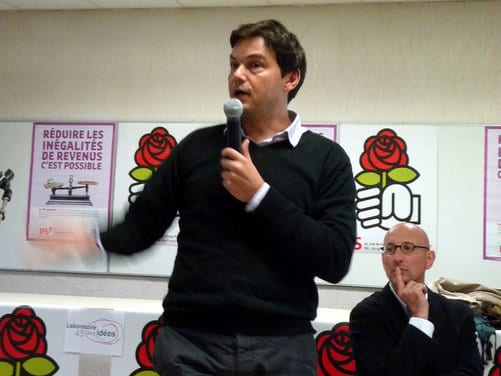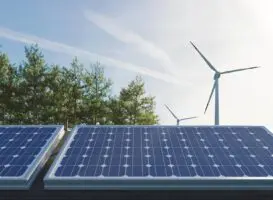
French economist Thomas Piketty and his book Capital in the Twenty-First Century are a global publishing phenomenon.
But while Piketty’s writing on wealth inequality has been widely debated, far fewer people know that he has some useful things to say about climate change and public capital.

In particular, Piketty discusses the discount rate and the differences in approach between Lord Nicholas Stern and Yale economist William Nordhaus.
The discount rate weighs future people’s benefits against costs borne by present people. It is the key to understanding action on climate change. The different views of Stern and Nordhaus go to the heart of how the planet addresses the climate change problem.
Pay now or later? And at what cost?
It seems to me that the main issue in terms of addressing the climate change problem is that, if we agree to reduce emissions now – and there is currently no global agreement in sight that provides for such reduction – people living in the future will benefit, not those living today. But we will, today, bear the costs of reducing such emissions.
Stern in The Economics of Climate Change, better known as the Stern Review, concludes that strong action on climate change is urgently required; Nordhaus’s view is not so much. Nordhaus thinks climate change requires only a modest response now, with more significant action delayed for decades (read more in A Question of Balance and The Climate Casino).
The discount rate accounts for these different approaches. It weighs future people’s benefits against costs borne by people in the present. If a cost benefit analysis uses a high discount rate, it discounts future benefits to a high degree, giving little weight to the interests of future people – on the basis that future people will be cleverer, richer and they’ll work it out (the Nordhaus approach). In contrast, Stern uses a low discount rate, and asks the present generation to make urgent sacrifices for the sake of future people.
Piketty’s take on discount rates
Piketty views Stern’s opinion as more reasonable. He argues, though, that more urgent need is:
to increase our educational capital and prevent the degradation of our natural capital. This is a far more serious and difficult challenge, because climate change cannot be eliminated at the stroke of a pen (or with a tax on capital)
He asks whether we really know what we should invest in and how we should organise our response to the challenge. Should we “count on advanced research to make rapid progress” in renewable energy, or should we immediately impose limits on carbon consumption? Piketty’s view is that no one knows how these challenges will be met or the role of governments “in preventing the degradation of our natural capital in the years ahead”.
And no one does know. Piketty’s uncertainty is shared by Oxford’s John Broome, who notes the current generation:
will be sacrificing some of its own well-being for the sake of greater well-being that will come to people far in the future. Is the sacrifice worthwhile? Does it improve the world on balance? This is a question of weighing: How do increases in future well-being weigh against sacrifices of present well-being?
Put another way, these questions highlight why the market may fail to adequately address the climate change problem. As Harvard’s Martin Nowak says: “Even if you want to cooperate with the future, you may not do so because you are afraid of being exploited by the present”.
The prevailing view at the international level about action on climate change seems to be, “Why should I care about future generations? What have they ever done for me?” And it’s those views about what future generations are worth that will determine climate change policy in 2014 and beyond.
Smoke, mirrors – and emissions trading
A larger question that Piketty doesn’t address is the usefulness of emissions trading schemes.
But it is a a question addressed in another important – albeit less famous – book, Philip Mirowski’s Never Let a Serious Crisis Go to Waste: How Neoliberalism Survived the Financial Meltdown, published late last year.
Mirowski offers a powerful critique of neoclassical economics. He argues that, for neoliberals, humans can never be trusted to know whether the environment is in crisis or not because:
both nature and society are dauntingly complex and evolving; therefore, the neoliberal solution is to enlist the strong state to allow the market to find its own way to the ultimate solution.
Emissions trading is a an elaborate “bait-and-switch” strategy, in which politicians are diverted from an original intention to reduce emissions into the endless technicalities of instituting and maintaining markets for carbon permits. The not unintended consequence is that the level of emissions continues to grow apace.
Once emissions trading is established, lobbying and “financial innovation” results in excess emissions trading permits and offsets, such that any cap on emissions never prevents emissions from growing. Mirowski argues that the “engineered glut of permits” – as we’ve seen with the European Union’s emissions trading scheme, a problem Europe is now struggling to solve – is not temporary, as unused or excess permits can be banked for future use.
It’s well understood, Mirowski continues, that emissions trading stifles technological innovation to curb emissions. Funds that ordinarily might have been used to alter energy infrastructure are “pumped into yet another set of speculative financial instruments, leading to bubbles, distortions of capital flows, and all the usual symptoms of financialization”.
For Mirowski, emissions trading does not curb global warming because it was never intended to do so; in practice, emissions trading – carbon permit trading – does not reduce emissions. Global experience to date might suggest that this is, in fact, correct.
Why this debate about the future matters now
Discount rates and emissions trading, of course, have present policy relevance.
At the end of next year in Paris, the world will meet to discuss whether developed and developing states alike will agree to emissions reduction targets from 2020 on.
In my view, the odds of such an agreement are about as good as seeing another Piketty proposal – a modest global tax on wealth – come true. Piketty understands such a proposal is “utopian”.
But in the meantime, in the United States the Environmental Protection Agency recently issued draft guidelines on fossil fuel power plants, and has set a national target of a 30% reduction in carbon emissions from such plants by 2030 on 2005 levels.
Under the EPA plan it’s left up to individual US states to set their own emission reduction targets and how to meet those targets. And, at the state level, emissions trading schemes appear to be the preferred option. The US Regional Greenhouse Gas Initiative is an emissions trading scheme comprising nine northeastern states. California also has an emissions trading scheme.
Apart from the EU, a number of developed and developing states around the world have also set up emissions trading schemes, including New Zealand, parts of China, Kazakhstan, Quebec and elsewhere.
These emissions trading schemes offer some hope that, together with other action, “bottom-up” approaches might result in an alternative to international action on emissions reductions.
![]()
Source: The Conversation. Reproduced with permission.








